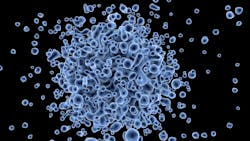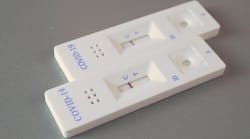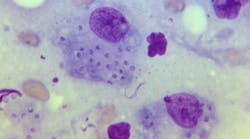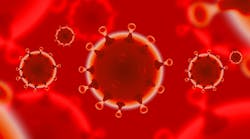As the COVID-19 pandemic continues to claim lives around the world, much research has focused on the immune system’s role in patients who become seriously ill. A popular theory is that the immune system gets so revved up fighting the virus that, after several days, it produces a so-called cytokine storm that results in potentially fatal organ damage, particularly to the lungs.
But new findings from a team of researchers led by scientists at Washington University School of Medicine in St. Louis (WUSTL) point to another theory and suggest that patients become ill because their immune systems can’t do enough to protect them from the virus, landing them in intensive care units. They suggest that boosting immunity could be a potential treatment strategy for COVID-19.
Such a strategy has been proposed in two recently published papers, one published online in JAMA Network Open and the other published online in JCI Insight. The Washington University researchers have been investigating a similar approach in treating sepsis, a potentially fatal condition that also involves patients who simultaneously seem to have overactive and weakened immune systems.
After gathering blood samples from 20 COVID-19 patients at Barnes-Jewish Hospital and Missouri Baptist Medical Center in St. Louis, the researchers employed a test to measure the activity of immune cells in the blood. They compared the blood of those patients to 26 hospitalized sepsis patients and 18 others who were very sick but had neither sepsis nor COVID-19. They found that the COVID-19 patients often had far fewer circulating immune cells than is typical. Further, the immune cells that were present did not secrete normal levels of cytokines — the molecules many have proposed as a cause of organ damage and death in COVID-19 patients.
Instead of trying to fight the infection by further interfering with the production of cytokines, they tried a strategy that has been successful in previous studies they have conducted in sepsis patients.
Researchers collaborated in a small study conducted in seriously ill COVID-19 patients who were hospitalized in Belgium. In that study, which was reported on in the JAMA Network Open paper, the COVID-19 patients were treated with a substance called interleukin-7 (IL-7), a cytokine that is required for the healthy development of immune cells. In those patients, the researchers found that IL-7 helped restore balance to the immune system by increasing the number of immune cells and helping those cells make more cytokines to fight infection.
The research did not demonstrate, however, that treatment with IL-7 improved mortality in COVID-19 patients. Studies focused on boosting immunity and improving outcomes among the sickest COVID-19 patients are just getting underway in Europe, and similar trials are starting in the U.S., including at Washington University.




